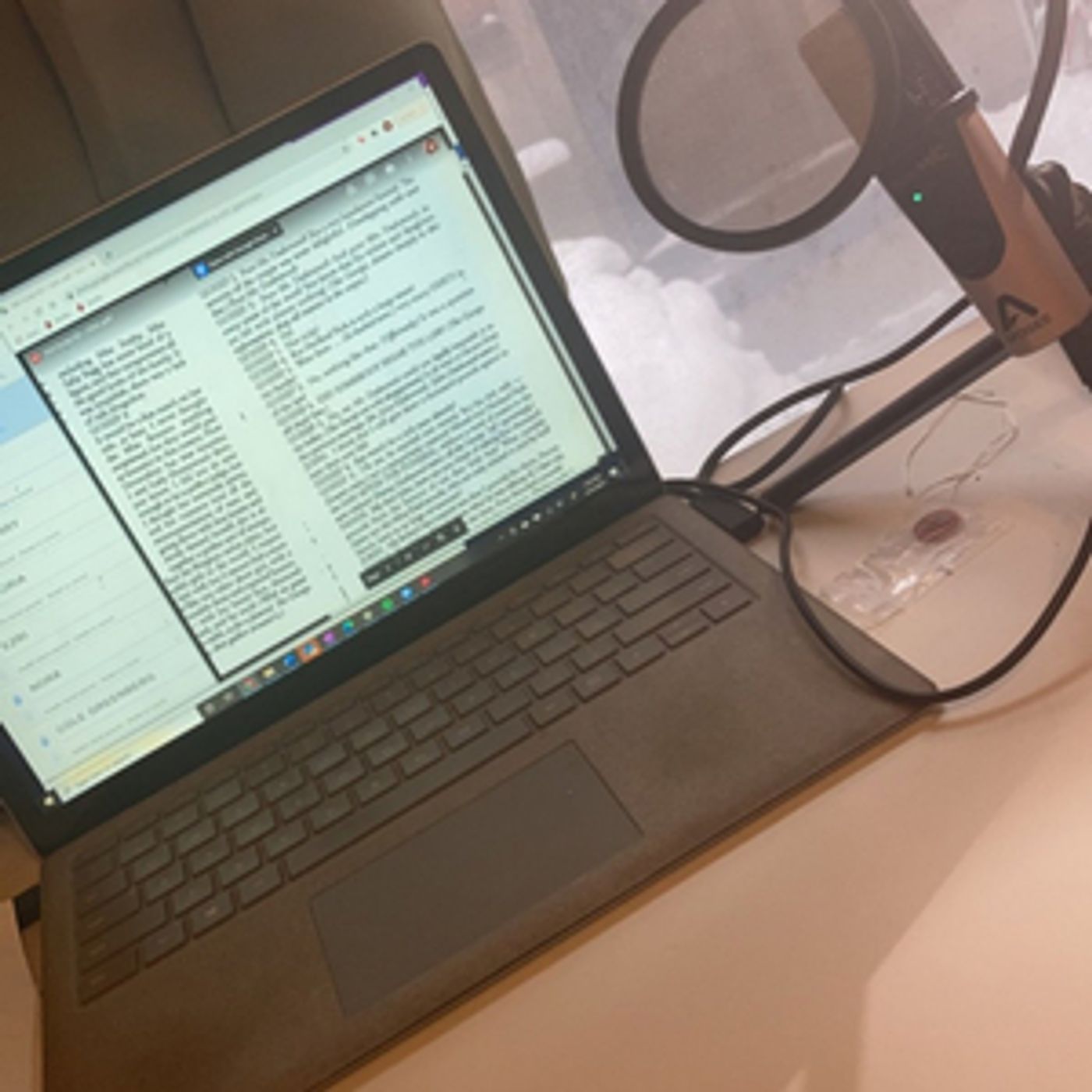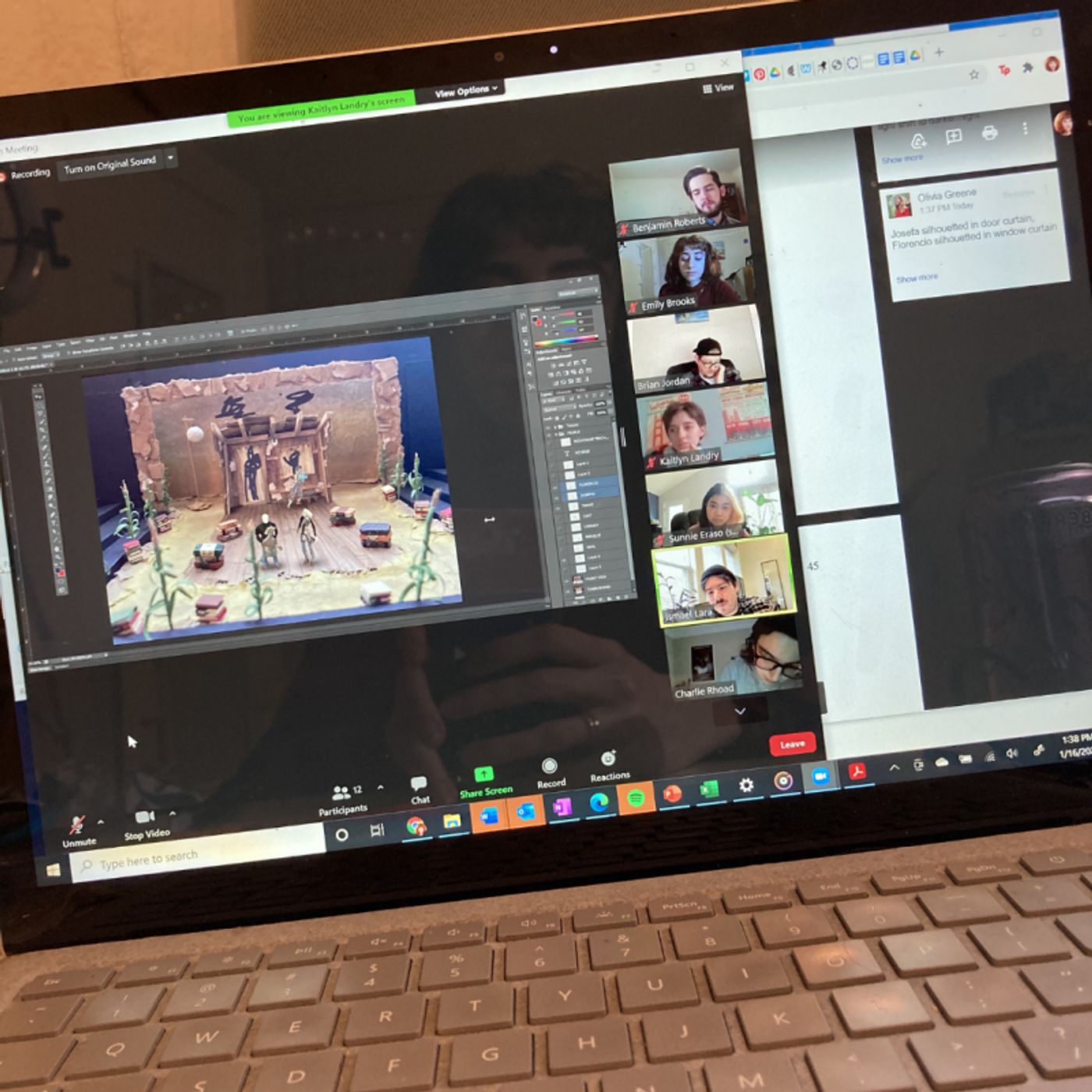BWW Blog: Beyond Zoom Plays
Getting creative in the age of virtual theatre.

This Covid winter quarter at Northwestern, I'm lucky enough to be engaging with theatre in a variety of ways. Beyond my continued largely-virtual study of musical theatre, I'm choreographing a play with music, performing in a play, and recently performed in a musical theatre cabaret. And while in a normal quarter, such a lineup would be run-of-the-mill for me as a constantly overcommitted performer-choreographer, this winter's variety of processes is not only allowing me to experience different aspects of theatremaking, but also a variety of approaches available for creating theatre in a virtual setting. After many months of - often brilliant - Zoom readings, this quarter is affording me a sampler of how many other ways safe, streamable theatre can be created today.
As a longtime fan of Jane Austen's brilliant words, I was thrilled to be cast in an adaptation of her novel Sense and Sensibility. In a move that fittingly placed those iconic words at the center, the team decided to record the production in a radio play format, transforming the experience in a variety of ways. As we are not preparing for a live performance of a full play, the rehearsal structure has shifted slightly: after a week of table work, we rehearsed virtually and made final recordings of the entirety of Act 1 before beginning on Act 2. As an actor particularly comfortable with physical work, a process that stripped away visuals/physical life entirely has offered an exciting opportunity to zero in on text and vocal/speech work - and once we finish, I will feel far more equipped for any opportunities requiring voice-over (or a British dialect)! This play in particular offered an exciting solution to the audio-drama problem of silent but significant onstage action: Kate Hamill's Sense and Sensibility already incorporates an ensemble of "gossips" whose discussions help create the world of the play. In our production, the actors playing gossips also read the stage directions, narrating action not communicated in dialogue in a manner that fits seamlessly with the overall style of the play.
While the process has centered the language that drives the story, aspects other than language have not been completely discarded: the website devoted to the project, where the final radio play will appear, will also showcase the work of designers whose contributions would normally be seen onstage. Perhaps the most exciting aspect to be introduced in this radio play format is the completely original score being created by a team of incredible undergraduate composers. Like your favorite Jane Austen film adaptations, our radio play will be underscored by beautiful instrumental music establishing the world and advancing the story, in much the way other visual aspects might in a traditional stage production.

are making it possible for us
to get back onstage again
to record Tomás and the Library Lady
on this beautiful set!
Another recent experience represented an a very different approach to performance, this time in musical theatre: a cabaret took to Streamyard to present a lineup of mostly live virtual performances. Cast members sang solos (or duets with roommates) to recorded accompaniment, and group numbers were created thru skillful editing of prerecorded videos. A platform that I became very familiar with when producing a similar cabaret last spring, Streamyard allowed us easy combination of virtual performance approaches to create productions easily live-stream-able to platforms like YouTube or Facebook.
The project I am choreographing takes a very different approach to Covid-era theatre, as we create a carefully filmed and edited version of Tomás and the Library Lady, a wonderful play with music written for young audiences. Ultimately, this play will be filmed on one of Northwestern's stages. However, Covid restrictions limit the space's occupancy to five, and with the director, cameraperson, and perhaps one more creative team member running the room, we are left with the ability to only have two or sometimes three actors onstage at a time. But thanks to the brilliance of the project's collaborators, this will not make full cast numbers impossible: actors will be filmed in the space in small groups, then edited together to create a visual of up to all seven cast members onstage at once. Of course, even these brilliant adaptations leave major choreographic challenges. For viability of editing, actors not recording in the space together cannot pass each other or exist on the same upstage-downstage plane in space. And no actors can be in the room together at all until we begin filming - meanign most of our rehearsal process is Zoom-only, with each actor tuning in from separate spaces. We've relied on lots of creative diagrams, careful explanations, and visualization to communicate a final vision we can't yet actually execute fully. But the work of the projects' brilliant collaborators seems to be ensuring a wonderful final product, despite challenges. Many actors will be operating beautifully built puppets, drawing focus away from necessarily masked faces. After teaching music virtually, our music and sound team collects audio recordings from the cast, which will be edited together to create the songs and audio viewers will hear. As a mainstage department production, Tomás and the Library Lady brings together a creative team of professionals, graduate students, and a few undergrads with the undergraduate cast to create this joyful, innovative production. I look forward to a final product which will be the closest thing to traditional theatre I've created since the pandemic began.
Of course, I look forward to the return of live theatre as we once knew it. But the challenges of the last year have inspired theatrical innovation unlike any we've seen before- as my current theatre projects have made especially clear to me. As traditional live theatre returns, it will be incredibly exciting to see how these digital innovations will remain present or integrate with traditional formats. The last eleven months have pushed us to reimagine what theatre-making can be, and I doubt we'll settle for a narrow definition again.

Videos


